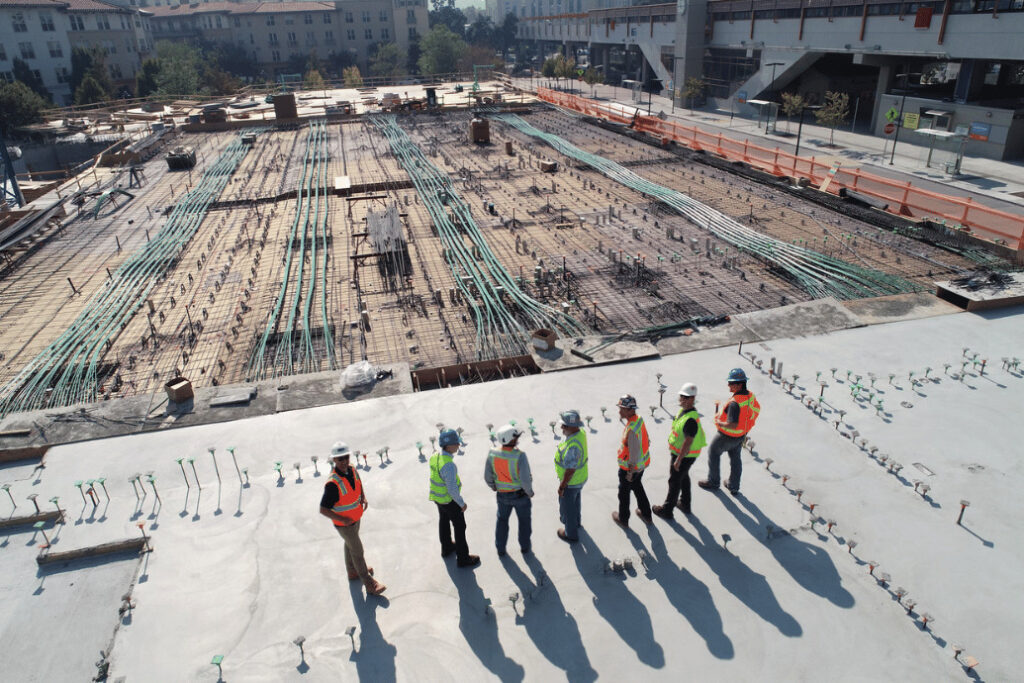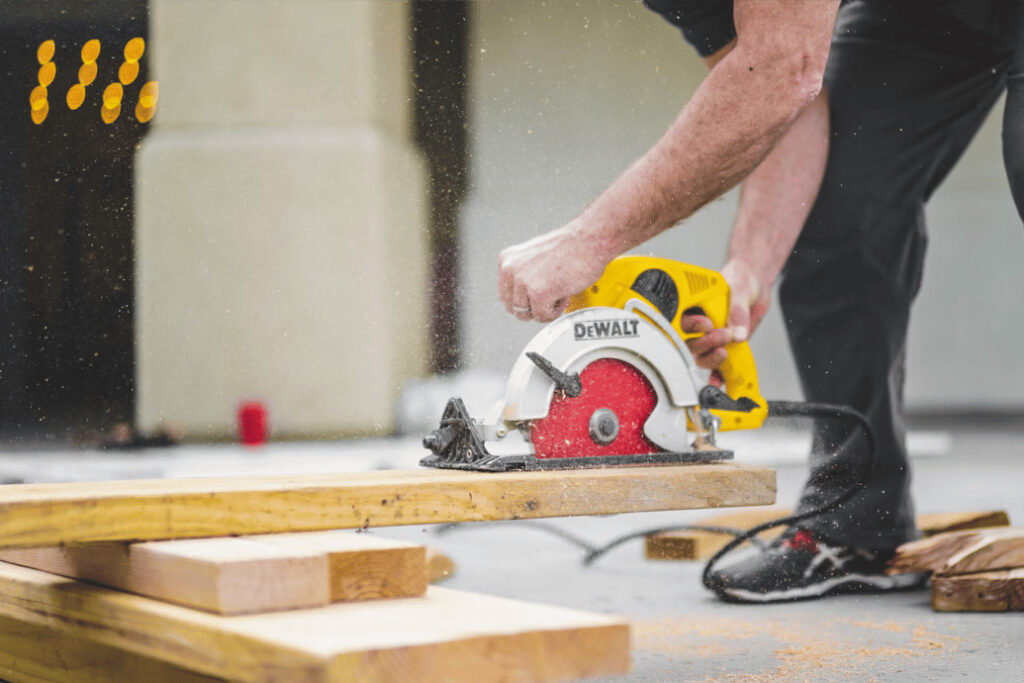07 March 2020
A Guide To Commercial Construction
Posted on March 7, 2020 by edenlondon. Last Updated on November 5, 2024
Commercial construction is more than just bricks and mortar. It’s about creating spaces that drive business and community growth. How do we know this? As a specialist building contractor, Eden London has over a decade of experience working on construction projects across a variety of sectors, ranging from as low as £10k to as high as £2m. We work with clients from all walks of life, all of whom have different visions for their spaces. This variety, and the chance to collaborate with clients to build their visions, is what makes work in the construction industry so fresh and exciting.
Because the bulk of our workload is commercial construction, and because we’ve found clients tend to have quite a few questions about this particular sub-sector, we thought we’d break down its essentials in this handy guide. We cover the following:
- What is commercial construction?
- Commercial construction projects by scale
- The key stages of a commercial construction project
- What to look for in commercial construction contractors
Let’s get started.
What is commercial construction?
Commercial construction refers to the development, construction, or renovation of buildings intended for commercial use. It’s essentially any building project which can be leased or sold in the private sector. The goal is often to create structures that support businesses, stimulate economic growth, and perhaps even attract public and private investments.
Examples of commercial buildings include:
- Offices
- Retail stores or shopping centres
- Leisure facilities
- Medical centres
- Factories and warehouses
In terms of how the sector fares economically post-Covid, the Office for National Statistics has shown in bulletins from 2021 to as recently as August 2024 that it continues to grow.

COMMERCIAL CONSTRUCTION PROJECTS BY SCALE
Commercial construction projects are commonly divided into three main categories:
- Small-scale projects: Smaller-scale or ‘light’ construction work on commercial premises usually centres around changing the appearance of a building. As such, the main focus on these projects is usually branding, aesthetics, refurbishments or interior fit-outs.
- Medium-scale projects: Whether a space needs a little reconfiguration to work for business growth or a store needs maintenance to address wear and tear, any form of remodelling, expansion or restructuring is classed as a medium-scale project. These projects often balance function with design and are common in mid-sized businesses or expanding sectors.
- Large-scale projects: Unlike other levels of construction, large-scale projects have no previous structure to go on and are literally built from the ground up. That’s why they are often called ‘ground up commercial construction’. These often require allocation of significant time and resources, but are some of the most exciting challenges a contractor can take on. Examples of large-scale projects include warehouses, high-rise buildings and blocks of flats.

THE KEY STAGES OF A COMMERCIAL CONSTRUCTION PROJECT
No matter the size of a commercial construction project, there are five key stages in the process that must be followed:
- Initiation: Before the project can begin, it must first be evaluated. This means assessing the extent of work, its pros and cons, and feasibility. At this early stage, it’s important to appoint someone to manage the project, usually a principal contractor, who can coordinate all contracted services and manage the objectives of the project.
- Planning: All the possible ways by which the project will be completed must be considered, and a plan must be put together. The details of the project, including its timeline and budget, must be considered in detail to ensure it can successfully meet its objectives. This plan should be formalised, so that it can be referred to for guidance during the different stages of the project.
- Execution: This is the stage where the plan is put into practice. During this period, actions are implemented under the control of the commercial construction project manager.
- Monitoring: The progression of the construction project is measured in line with the projected timescale and budget. Adjustments are made if required to ensure the project completes as estimated. This phase also includes most of the finishing touches, such as painting and wood or metal work.
- Completion: Once the construction work is complete, the project manager needs to finalise everything is ready to sign off to the client. This can include landscaping, general cleaning tasks and a final inspection.
WHAT TO LOOK FOR IN COMMERCIAL CONSTRUCTION CONTRACTORS
A lot rests on getting a commercial construction project right. From the date an office team can move in and start working to opening your new store in time for a peak trading period, there are many moving parts that need to come together to bring a commercial project in on time and on budget.
As such, it is always recommended that commercial construction is managed by an industry professional. If you are searching for a commercial construction contractor, then keep an eye out for the following:
- Are they fully accredited and capable of working on your project?
- Do they have an excellent track record for delivering on time and on budget?
- Do they have glowing reviews about the work they have done?
To ensure you find the right contractor for your commercial construction project, we’ve put together a handy checklist of what to ask a potential contractor.
If you have any questions, or are looking for a specialist principal contractor with years of experience managing commercial fit outs and construction projects, then please get in touch with us. Our team can oversee all five phases of construction for your commercial premises to ensure your project is of the highest quality and on time and on budget.
“All work by Eden, whether a replacement tap or a £1.1 million fit out, is completed with the utmost level of competence. Very reassuring for a client.
– Sue McNally, Head of Procurement, The Prince’s Trust
